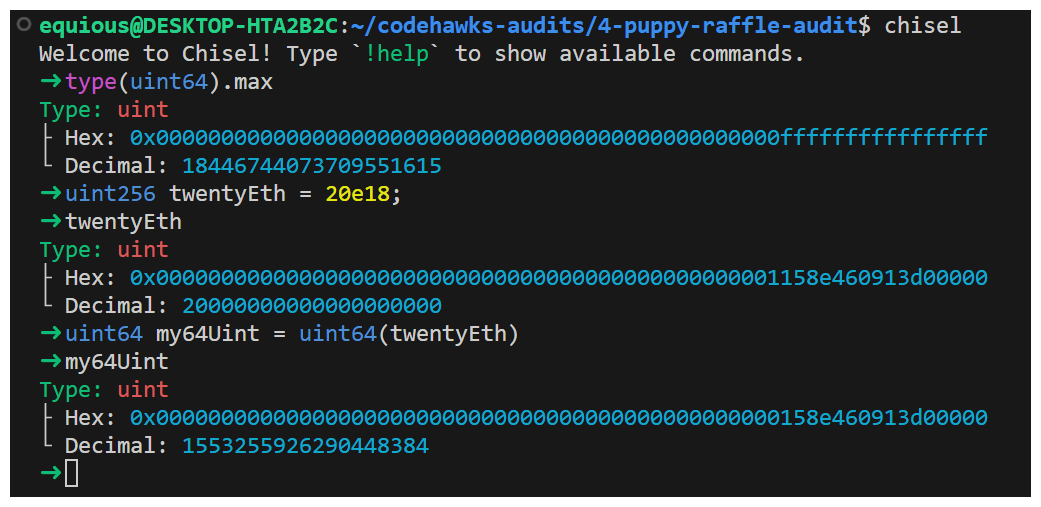_Follow along with this video:_ --- ### Unsafe Casting Breakdown There's another issue with the line `totalFees = totalFees + uint64(fee)` that's similar to integer overflow, but a little different. Using `chisel` again, we can see that a max `uint64` is 18446744073709551615. ```bash Welcome to Chisel! Type `!help` to show available commands. ➜ type(uint64).max Type: uint ├ Hex: 0x000000000000000000000000000000000000000000000000ffffffffffffffff └ Decimal: 18446744073709551615 ➜ ``` We've also learnt that adding any to this number is going to wrap around to 0 again, but what happens if we try to cast a larger number into this smaller container?  We can see above that when `20e18` is cast as a `uint64` the returned value is actually the difference between `type(uint64).max` and `20e18`. Our value has wrapped on us again! ```js // twentyEth = 20000000000000000000 // type(uint64).max = 18446744073709551615 // uint64(twenthEth) = 1553255926290448384 ``` This is absolutely something we're calling out in our audit report. Puppy Raffle is at risk of losing so many fees!
Follow along with this video:
Unsafe Casting Breakdown
There's another issue with the line totalFees = totalFees + uint64(fee) that's similar to integer overflow, but a little different.
Using chisel again, we can see that a max uint64 is 18446744073709551615.
We've also learnt that adding any to this number is going to wrap around to 0 again, but what happens if we try to cast a larger number into this smaller container?

We can see above that when 20e18 is cast as a uint64 the returned value is actually the difference between type(uint64).max and 20e18.
Our value has wrapped on us again!
This is absolutely something we're calling out in our audit report. Puppy Raffle is at risk of losing so many fees!
Exploit: Unsafe Casting
Overflow issue: Loss of significant digits due to uint64 casting from uint256, leading to lost fees. Importance of identifying & fixing in audit reports.
Previous lesson
Previous
Next lesson
Next
Duration: 25min
Duration: 1h 30min
Duration: 35min
Duration: 2h 28min
Duration: 5h 04min
Duration: 5h 23min
Duration: 4h 33min
Duration: 2h 01min
Duration: 1h 41min